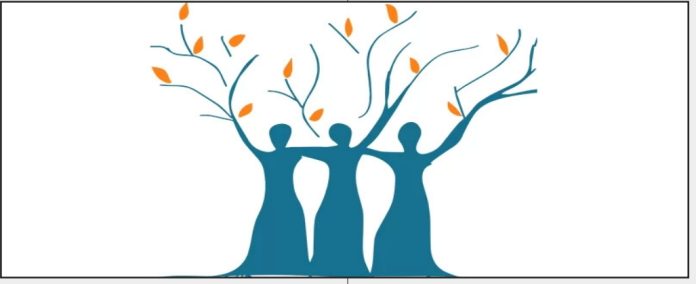Law should not empower somebody to destroy someone else.
Street Talk
Expert Opinion

(sajjadbazaz@straight-talk-com)
International Women’s Day on March 08 as usual witnessed congratulatory messages flashed on women folk through various platforms, including social media platforms. The common thread in all these messages was preaching women empowerment and encouraging them to stand up to fight for their rights. However, I didn’t find a single message or statement asking the women folk to make judicious use of their empowerment in the interest of building a healthy society. The legal empowerment granted to them under Section 498A of Indian Penal Code (Now listed as Section 85 of the Bharatiya Nyaya Sanhita), has already created furore across societies for being grossly misused by women against men. Even as the issue of misuse of women-centric laws – Section 498A IPC in particular – is not new, it has surfaced and continues to surface at regular intervals over the years, with more brutal stories.
The recent tragic death of 34-yr old techie Atul Subhash, who allegedly died by suicide due to marital discord with his wife and ensuing litigations, has once again sparked a debate around Section 498A. In his suicide note, as reported by media, Atul also criticized the justice system and said it was unfairly tilted to favour women. He has also left a letter addressed to his four-year-old son, asking him not to trust the “system”.
Notably, the Supreme Court has used the term “legal terrorism” phrase to describe situations where Section 498A is used to harass or intimidate husbands and their families, often with the intent of forcing a settlement or causing undue hardship.
Basically, Women’s Day over a period of time has become an alternative expression of women’s empowerment day. Everyone talks about giving more and more power to the women to stay afloat with dominance in decision making, be it at the domestic front, workplace or any other level. Interestingly, the discussions and pleas seeking empowerment of women have been expansive, and even pleaded by those who have been victims of the misuse of this gender empowerment.
When we talk of empowering a person, it is to “give someone the authority or power to do something”, or “to make someone stronger or more confident, especially in controlling their life and claiming their rights”. On the premise of being denied certain freedoms and opportunities in the past, women’s empowerment emerged as a new phrase in the vocabulary of gender literature. Specifically, this aims at enhancing their position in the power structure of the society by enabling them to move to the centre stage.
Giving wings of power to women is not bad. But its misuse has sent (and continues to send) shivers down the spine of those who are at the receiving end. It has become a trend of misusing empowerment by women and it is only increasing with every passing day that too under the nose of legal authorities.
To be precise, empowerment is the most familiar word in the context of talking about women and women’s rights. This may empower debaters to vouch for women’s empowerment, but in my view, this is now being overused and at the same time giving a license to be misused as a firearm to disempower others, which is really disturbing for the families who become victims. I am not against women’s empowerment, but the way unscrupulous segments of the women folk are grossly misusing the women-friendly laws has (and continues to) spoil the social fabric.
If various surveys to map the level of misusing empowerment by women are taken into account, we find modern urban educated women on the forefront engaged in using it as a weapon to harass, humiliate and settle scores with those they ‘hate’ – this may surprisingly include both genders. There is no help for those falsely accused from the society just because an allegation levelled by a woman labels them as culprits. Even the respite from courts is also little. The damage becomes critical when the police harasses and files FIR without going deep into the problem.
There are credible reports in place picking many women using the laws to satiate their greed for money. “They use the law to extract money from the husband and in-laws. In fact, the law is being used by women against women. Old mothers and innocent sisters have been implicated on the basis of mere allegations. Many families are going through a very difficult time because a woman has filed frivolous complaints against them,” reads a part of a survey report.
Meanwhile, as per a survey report published in the e-journal of the Legal Services India, the Supreme Court had modified its judgment to ensure there is no misuse of section 498A.
The Supreme Court said that in every district one or more Family Welfare Committees be constituted by the District Legal Services Authorities preferably comprising three members. Every complaint under Section 498A received by the police or the Magistrate be referred to and looked into by such a committee. Till the report of the committee is received, no arrest should normally be effected.
In nutshell, the misuse of empowerment by unscrupulous women is only increasing. In fact, stories of such misuse are horrifying. Empowered women need to think that being strong doesn’t mean putting someone else down. This ‘legal terrorism’ is an evil which needs to be nipped in the bud and women-friendly laws need to be revisited so that the women habitual of filing complaints on fake grounds are punished. Let this breed of women be stopped to play the power card. No kind of empowerment should give a free hand to women to accuse men or even other women on fake grounds.
Before concluding, a Supreme Court of India judgment delivered on July 19, 2005 in a case Sushil Kumar Sharma Vs. Union of India (UOI) and Ors merits a mention and still holds ground as the situation has not changed even after 20 years of the SC ruling which had termed IPC Section 498A as ‘Legal Terrorism’.
In this case, it was prayed to declare Section 498A to be unconstitutional and ultra vires in the alternative to formulate guidelines so that innocent persons are not victimized by unscrupulous persons making false accusations.
The judgment reads: “…many instances have come to light where the complaints are not bonafide and have been filed with oblique motive. In such cases acquittal of the accused does not in all cases wipe out the ignominy suffered during and prior to trial. Sometimes adverse media coverage adds to the misery. The question, therefore, is what remedial measures can be taken to prevent abuse of the well-intentioned provision. Merely because the provision is constitutional and intra vires, does not give a licence to unscrupulous persons to wreck personal vendetta or unleash harassment. It may, therefore, become necessary for the legislature to find out ways how the makers of frivolous complaints or allegations can be appropriately dealt with. Till then the Courts have to take care of the situation within the existing framework. As noted above the object is to strike at the roots of dowry menace. But by misuse of the provision a new legal terrorism can be unleashed. The provision is intended to be used a shield and not an assassin’s weapon.”
In short, law should not empower somebody to destroy someone else.
(The author is Editor-in-Chief, Straight Talk Communications. He is former Head of Corporate Communications & CSR Department and Internal Communication & Knowledge Management Department of Jammu & Kashmir Bank)


